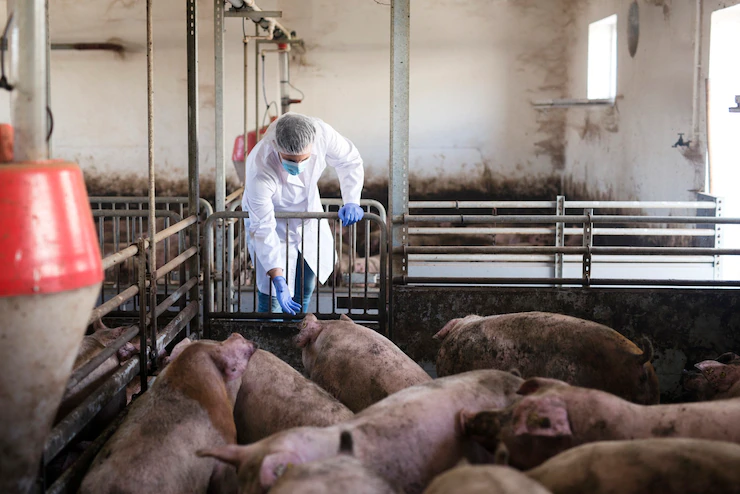South Africa has experienced a significant increase in its appetite for pork in recent years. As the population grows and incomes rise, the demand for pork as a source of protein has soared. This surge in demand presents both opportunities and challenges for the pork production industry in the country. Meeting the growing needs of consumers requires strategic planning, sustainable production methods, and a focus on quality and safety. In this article, we will explore the current state of pork production in South Africa and discuss the measures being taken to satisfy the country’s increasing appetite for pork.
- Current State of Pork Consumption in South Africa: South Africa’s population has been steadily growing, leading to an increased demand for meat, including pork. Pork is becoming more popular due to its affordability, versatility, and nutritional value. Additionally, cultural factors, such as the diverse culinary traditions present in South Africa, contribute to the rising consumption of pork.
- Challenges and Opportunities: a. Disease Management: One of the significant challenges faced by the pork production industry is the management of diseases that affect pigs. African Swine Fever (ASF) is a particular concern, as outbreaks can devastate pig populations. Implementing strict biosecurity measures and raising public awareness about disease prevention are crucial for sustainable pork production.
b. Sustainable Production: As the demand for pork grows, it is vital to adopt sustainable production practices. This includes efficient resource management, responsible waste disposal, and minimizing the industry’s environmental footprint. Encouraging small-scale pig farmers and supporting them with training and resources can help ensure a diverse and resilient pork production sector.
c. Quality and Safety: Maintaining high standards of pork quality and safety is paramount. Implementing robust food safety regulations, conducting regular inspections, and promoting good hygiene practices throughout the pork supply chain are essential to protect consumers and maintain their trust.
- Government Support and Initiatives: The South African government recognizes the importance of the pork industry and has taken steps to support its growth. This includes providing financial assistance, facilitating access to markets, and investing in research and development. By working closely with industry stakeholders, the government aims to create an enabling environment for sustainable and competitive pork production.
- Technology and Innovation: Embracing technological advancements can significantly enhance pork production efficiency and productivity. Modern tools such as precision farming techniques, genetic improvements, and data analytics can optimize pig rearing, breeding, and health management. Furthermore, innovation in processing and packaging techniques can improve product quality, extend shelf life, and reduce waste.
- Consumer Education and Promotion: Raising awareness among consumers about the benefits of pork and the industry’s efforts to ensure quality and safety is crucial. Educational campaigns, cooking demonstrations, and collaborations with culinary influencers can help dispel misconceptions and encourage more people to include pork in their diets.
The increasing appetite for pork in South Africa presents an exciting opportunity for the country’s pork production industry. By addressing challenges related to disease management, sustainability, and quality control, and with support from the government, the industry can meet the growing demand. Embracing technology and innovation, while focusing on consumer education and promotion, will further contribute to the success of the sector. With careful planning and collaboration between stakeholders, South Africa can satisfy its population’s hunger for pork while ensuring a sustainable and thriving industry.
Join 'Farmers Mag' WhatsApp Channel
Get the latest Farming news and tips delivered straight to your WhatsApp
CLICK HERE TO JOIN






